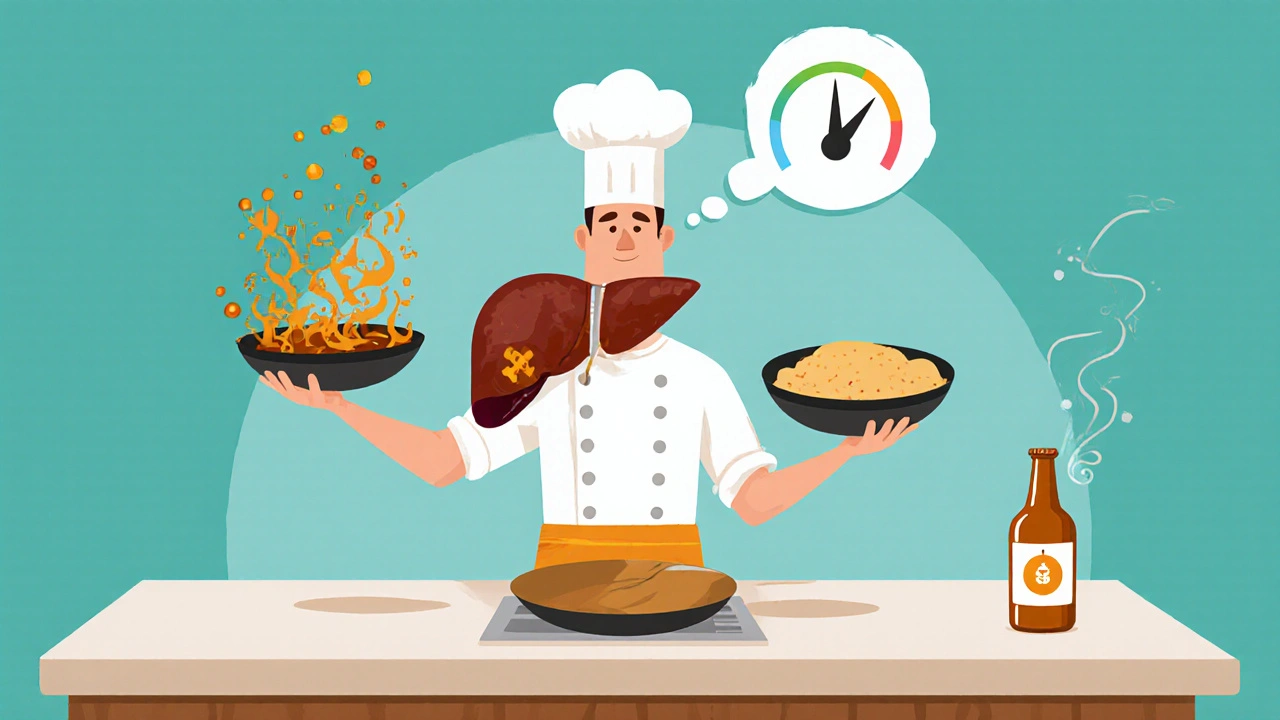Hypoglycemia and Alcohol: What You Need to Know
When you drink alcohol, a substance that interferes with the liver’s ability to release glucose. Also known as ethanol, it can trigger sudden, dangerous drops in blood sugar—even in people without diabetes. This is called hypoglycemia, a condition where blood glucose falls below safe levels, often under 70 mg/dL. It’s not just a problem for diabetics on insulin. Anyone who drinks on an empty stomach, skips meals, or takes certain medications can be at risk.
Here’s how it works: your liver normally keeps blood sugar steady by breaking down stored glycogen. But when alcohol enters your system, the liver prioritizes breaking down the alcohol instead. That means no glucose gets released. If you haven’t eaten, your body runs out of fuel fast. Symptoms like shakiness, sweating, confusion, or dizziness can show up within an hour—or even hours after drinking. Worse, these signs can be mistaken for drunkenness, delaying help. People with diabetes are especially vulnerable because their bodies already struggle to balance glucose. But even healthy adults can slip into hypoglycemia after a few drinks, especially if they’re fasting or exercising.
Blood sugar, the main source of energy for your brain and body. It’s not just about sugar intake—it’s about how your body manages it. Alcohol doesn’t just lower glucose; it can also block the body’s natural response to low sugar, like releasing glucagon. That’s why some people pass out without warning. And if you’re on medications like insulin, sulfonylureas, or even certain antibiotics, the risk multiplies. Even a single drink can be enough to tip the scale.
You don’t need to quit alcohol entirely, but you do need to know how to drink safely. Always eat before and while drinking. Avoid sugary mixers—they cause a quick spike, then a crash. Carry a snack or glucose tablet. Let someone know you’re at risk. And if you feel dizzy or confused after drinking, don’t assume it’s just the alcohol. Check your blood sugar. If you’re unsure, get help. This isn’t just about feeling bad—it’s about preventing seizures, coma, or worse.
The posts below give you real, practical advice on how alcohol affects blood sugar, what medications make it worse, how to recognize early signs, and what to do if you or someone else is in danger. You’ll find clear comparisons, proven tips, and no-fluff guidance from people who’ve been there. Whether you manage diabetes, take meds that interact with alcohol, or just want to drink smarter, you’ll find what you need here.
Learn how alcohol interacts with diabetes meds, the risk of hypoglycemia, liver effects, and safe drinking tips for people managing diabetes.
Oct, 25 2025

